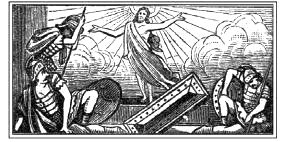
| Contents | Iesu, Dulcis Memoria Jesus, Sweet Memory |
Hymni |

Iesu, Dulcis Memoria is a celebrated 12th century hymn attributed to St. Bernard of Clairvaux (1090-1153), Doctor Mellifluus. The entire hymn has some 42 to 53 stanzas depending upon the manuscript. Parts of this hymn were used for the Feast of the Holy Name of Jesus, which was formerly celebrated on the Sunday between the Circumcision and Epiphany, or failing such a Sunday, on January 2. The part below was used at Vespers. In the liturgical revisions of Vatican II, the feast was deleted, though a votive Mass to the Holy Name of Jesus had been retained for devotional use. With the release of the revised Roman Missal in March 2002, the feast was restored as an optional memorial on January 3. Similarly the Feast of the Holy Name of Mary was restored as an optional memorial on September 12 in the revised Missal.
|
| IESU, dulcis memoria, dans vera cordis gaudia, sed super mel et omnia, eius dulcis praesentia. |
JESU, the very thought of Thee, with sweetness fills my breast, but sweeter far Thy face to see, and in Thy presence rest. |
| Nil canitur suavius, nil auditur iucundius, nil cogitatur dulcius, quam Iesus Dei Filius. |
Nor voice can sing, nor heart can frame, nor can the memory find a sweeter sound than Thy blest Name, o Savior of mankind!. |
| Iesu, spes paenitentibus, quam pius es petentibus! quam bonus te quaerentibus! sed quid invenientibus? |
O hope of every contrite heart o joy of all the meek, to those who fall, how kind Thou art! how good to those who seek! |
| Nec lingua valet dicere, nec littera exprimere: expertus potest credere, quid sit Iesum diligere. |
But what to those who find? Ah this nor tongue nor pen can show: the love of Jesus, what it is none but His loved ones know. |
| Sis, Iesu, nostrum gaudium, qui es futurus praemium: sit nostra in te gloria, per cuncta semper saecula. Amen. |
Jesu, our only joy be Thou, As Thou our prize wilt be: Jesu, be Thou our glory now, And through eternity. Amen. |
| Latin, Roman Breviary. Also see "My Prayer Book", Fr. Lasance, 1908, pp 535-536. Translation by Fr. Edward Caswall (1814-1878). |
<- Prev |
Next-> |
